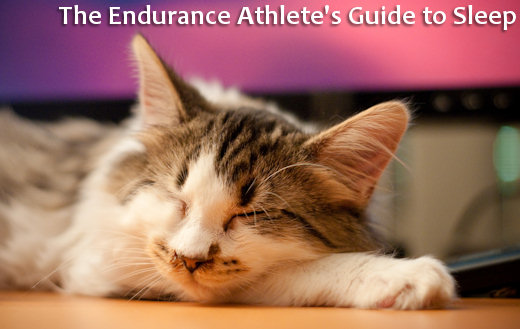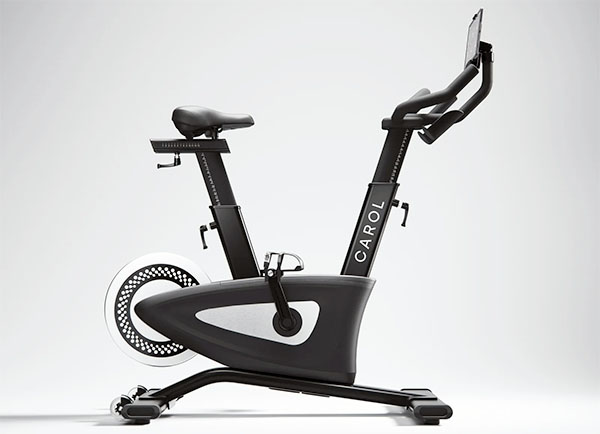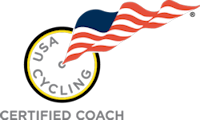
While some people want to win races, and some would like to complete a big event (like a century ride or gran fondo), and others strive to lose body fat, there’s one concern that nearly everyone shares. And that concern is fatigue.
I get emails like the following all the time, but this one was the tipping point that inspired me to put together a huge resource on fatigue (and what you can do about it).
Hello Coach,
I am 43 years of age and i started road cycling off and on for about 3 years, I find myself becoming very tired (fatigue) for a long period after riding, can you guide me on this?
Regards,
Fatigued Fiona
I’ll go out on a limb and guess that she wants me to guide her on preventing, lessening, or delaying this fatigue!
Fiona is not alone. Road cyclists of all ages encounter fatigue – often on a daily basis! Only occasionally does the fix require a doctor visit, so let’s what she (and you) can do to make the most of your training without spending the rest of your day too tired to do anything.
Table of Contents
What Is Fatigue?
I don’t think there’s one true definition of the word. So here’s how I see it:
- A drop in performance compared to a previous benchmark (whether that was your last session or last week or a second ago).
- A chronic lack of motivation and energy.
You could suffer from one or both of those symptoms. The first could be considered acute fatigue, which is when you get tired during a ride (“I can’t do another interval!”) or shortly after (“Time for a nap!“). The second is chronic fatigue, which is the one you have to watch out for. More on that later!
Acute fatigue is a feeling I’m sure you’re familiar with. It will set in during your ride or show up soon after. The dreaded bonk is the onset of some serious fatigue! Or one day you might just wake up and feel like crap. It all starts the same way.
If you think about it, fatigue is actually built into your training schedule. You’ll have rest days in your schedule because your coach knows you’ll need to rest up from the hard sessions that surely brought on – you guessed it – fatigue.
It’s a fact of life for endurance athletes. In the next section we’ll look at the different causes of fatigue and theories behind it.
The Science and Theories Behind Fatigue
If you thought muscle cramps were complex and mysterious, wait till you hear the theories behind fatigue!
There are three main theories, each more complex than the last. They are:
- Catastrophe theory
- Central Governor theory
- Psychobiological theory
Catastrophe theory
As the name implies, this begins with a “catastrophe” within the body, and results in the body not functioning normally (“bonking” you could call it.) Said catastrophe could be caused either by the accumulation of metabolic byproducts (potentially related to lactic acid) or the depletion of energy stores (such as glycogen and glucose.)
Either has the potential to occur. The former is more likely in shorter workouts, the latter more likely in longer workouts. I’m sure you can relate to it from experience!
Central Governor theory
This “revolutionary theory” presented in 2004 says that your central nervous system acts as a central governor of your body, regulating exercise. Basically, if your brain thinks you’re working too hard, or senses that you could run out of fuel, it will tell your body to slow down. Rather than a catastrophic failure occurring, your brain forces your body to slow down before any such event occurs. I reckon we’re better off this way!
Psychobiological theory
This one is essentially a twist on the central governor theory. It’s not that your CNS halts exercise right before a catastrophe, rather, it halts you well before said catastrophe could happen. The details are complicated, but in a nutshell, the theory says your brain is constantly making decisions on if it’s worth keeping up with this exercise intensity. Which is probably why you have the urge to slow down whenever you’re riding hard.
Dr. Marcora was able to show that even if you have a fatigued athlete who just exercised to the point of failure, they can produce a greater power output if there is a big enough reward on the table.
You’ve probably experienced the same thing. Let me give you an example. Say there’s a crowd cheering you on, or the finish line is within sight. That’s a reward, so your brain says “alright, it’s worth letting you use up some more energy here.” I doubt you ever get the same feeling out on a lonely country road… unless you’re being chased by a bear! Survival is a very enticing award!
If you ask me, it looks like your muscles and your brain are all in on this together, joining forces in an attempt to sabotage your training in the name of general health and well-being!
Practically Speaking, What Causes Fatigue?
There’s a lot that can go into it, both on the bike and off.
In lay man’s terms, here is what causes fatigue:
Exercise and Training
- High training volume
- High workout intensity
- Glycogen depletion
- BCAA depletion
Diet and Nutrition
- Not enough calories.
- Not enough carbohydrates.
- Too little sodium.
- Too little calcium.
Lifestyle Factors
- Chronic stress at work
- Stress in your personal affairs
- Lack of sleep (both quantity and quality)
What to Look For: Signs and Symptoms That You Are Fatigued
Whether your muscles actually reach their limit or your brain puts your muscles on standby with a little left in reserve, fatigue hurts just the same.
You can experience fatigue in many ways:
- Feeling tired and worn out all the time
- Not wanting to get out of bed
- Lack of energy during workouts
- Motivation and enthusiasm have completely dried up
- Sleeplessness and irritability
- Muscle soreness plus general aches and pains
- Elevated resting heart rate
- Declining workout performance
How do you know if it’s serious?
In this age of heart rate monitors and power meters, and the low cost of home blood pressure monitors and sleep trackers, you have a lot of tools and data at your disposal. And this data will give you a pretty good indication of how much trouble you’re in!
If you do your workout and it feels harder than usual, but you are still able to generate your normal power output and raise your heart rate to the intended training zone, you are probably fine. This is acute fatigue that happens over the course of training and generally goes away after a rest day.
On the other hand, if you attempt a workout and can’t produce power like normal, and/or you have trouble elevating your heart rate, that’s bad news! You could be headed for overtraining (and the chronic fatigue I warned about earlier.) It’s time to step back and reevaluate immediately!
When should you cancel a training session?
You might feel tired and worn down and decide to take the day off. Don’t do it! It’s a trap!
As we learned earlier, our brains don’t like us to push too hard, so your brain is telling you no, even though you may be capable of getting a great workout in.
The best course of action is to attempt the workout and see how you feel after a warm up. Often, you feel better quickly and do fine. If you warm up but still feel like crap and/or can’t perform, go home and rest.
What to Do About Fatigue: First Steps
There are a few basic ways to combat fatigue. Begin with these:
Rest and Recovery
The very first thing to do is forget your athletic goals and prioritize your health, which means to focus on rest and recovery. If you don’t, both your performance and health will suffer!
That means, fit in as much yoga, massage, and napping as possible without stressing out about it. Often, you’ll feel like yourself again in 1-2 days. If you’ve been training especially hard, take it easy for a week.
Eat, Drink, and Be Merry!
Make sure you’re consuming enough calories to sustain your body, and make sure you’re getting adequate carbohydrates to fuel your workouts. It’s all too common for athletes to feel run down if they’re trying to diet and train at the same time. This is the quick fix for that.
Also, make sure you’re drinking enough water; maybe even an electrolyte drink, just to be safe.
Get Better Sleep
Lack of sleep, poor quality sleep, and disrupted sleep patterns are going to wreak havoc on your body. If you want to feel better quickly, this is where you’re going to see big gains from small changes.
Rid yourself of stress in the evening, turn out the lights (no computer or TV), and fall asleep as early as possible.
Supplements to Consider
If you’re in a bind, there are some supplements that can be used as part of your anti-fatigue program. These are intended to supplement the basic lifestyle changes mentioned earlier.
First, there are the basics, like a multivitamin, B complex, and fish oil. In general, those may improve your health, energy, and recovery ability. But we’re going to look at the more advanced options that have been studied specifically for their stress-relieving and fatigue-fighting capabilities.
#1 Source for Stress Relief: Adaptogens
Adaptogenic herbs are proven to provide stress relief, so they’re going to be your #1 ingredient to look for in a supplement. Of all the herbs, there are two which have shown time and again to be the cream of the crop.
These two, which boast the most research and most effectiveness – are panax ginseng and Rhodiola rosea. (With the biggest consensus from the research actually going to Rhodiola rosea.)
And I totally agree. Recently, I’ve had great success with Ginsana, which is a fairly inexpensive panax ginseng supplement. For years, I’ve seen stellar results from Rhodiola rosea; my favorite way to take it is in the Wilderness Athlete Superman drink I tested.
Another adaptogen I’ve had success with is Tulsi, or Holy Basil. It might not be as potent as the others, but I find a glass of Tulsi tea quite relaxing (and tasty.)
Other Promising Options
While adaptogens reign supreme, there are some other supplements that show promise (they just need more evidence.) Here are some of them that you can look into:
- Licorice root
- L-tyrosine
- L-Carnitine
- Phosphytidylserine
- Probiotics
- Creatine
- CoQ10
Some attempt to ward off fatigue during exercise, some reduce cortisol levels, some lessen anxiety, and some are aimed at chronic fatigue.
Energy Stacks
Rather than focus on one specific ingredient, you may prefer to take an assortment of these herbs and substances. Fortunately, there are some supplements specifically for this!
The aforementioned “Superman” concoction is one idea. On top of the Rhodiola rosea, it also delivers some CoQ10 (which may reduce fatigue during exercise) and L-Carnitine (which may lessen chronic fatigue).
Another interesting choice is a supplement called Regenerizer.
Regenerizer is part of the Dr. Dave’s Best line, which is more of an anti-aging assortment, but it could prove just as beneficial for tired endurance athletes. It’s a stack of these four main ingredients:
- L-Carnitine
- Ubiquinol (basically CoQ10)
- Dehydroepiandrostenedione (basically DHEA)
- Malic Acid
As mentioned, L-Carnitine has been shown to decrease physical and mental fatigue, at least in elderly subjects. (Source.)
Coenzyme Q10, or CoQ10, could allow you to push through fatigue during intense exercise, at least if you’re a sedentary man taking a Wingate test in the lab. (Source.)
DHEA could potentially increase testosterone in both young and old athletes (although it would be more useful for older men.) However, that’s probably why it’s considered a banned substance by both WADA and the NCAA. Just ask Tyler Hamilton about taking OTC herbal supplements and the consequences… (Source.)
Malic acid is an interesting one. The research and suggested use is centered around patients with fibromyalgia. But what it does is help your body produce ATP, and there’s a chance that it could help you stay aerobic longer before switching over to anaerobic energy production. I’ll be on the lookout for a study to see if malic acid can help trained individuals extend their endurance when cycling!
“Should I See a Doctor?”
So, you switched to a healthier lifestyle with less stress and better sleep, and you even took some supplements, but you’re not seeing improvements?
Then yes, it’s probably a good time to see your doctor!
You may be considered to have “chronic fatigue syndrome,” a very complex disorder consisting of fatigue, anxiety, and other undesirable symptoms.
They’ll run some blood work, most likely checking your thyroid, adrenal glands, and iron levels.
You could be suffering from hypothyroidism. Or your thyroid might be fine, and there could be an underlying cause that’s not going to be fixed with prescribed medicine. That’s exactly what happened in this case study where a young personal trainer had serious fatigue issues. It turned out the true culprit was metabolic down-regulation because of stress and inadequate food intake, which totally makes sense for a personal trainer in his 20’s. cyclists obsessed with their racing weight could suffer similar consequences.
Another popular diagnosis is adrenal fatigue. This means your adrenal glands aren’t as active as they should be. If you haven’t been to the doctor yet, you can actually perform some simple at-home tests to check for proper adrenal gland function.
Last but not least, you could be deficient in iron. This can result in iron deficiency anemia, a condition in which you don’t have enough iron to create red blood cells. As an endurance athlete, I’m sure you can appreciate the importance of red blood cells! So it’s good to have your actual iron checked, along with your ferritin levels (low ferritin could indicate iron deficiency.)
The Future: Proper Training and Nutrition
OK, so you have conquered your fatigue, you are healthy, well-rested, and motivated to train hard. What now?
Take a good, hard look at your training logs. You don’t want to suffer through serious fatigue again, so review your training log and food log, making note of any times where you might want to replace a workout with a rest day or up the calorie intake.
Develop healthy habits. Managing stress, getting enough sleep, and eating healthy should become part of your daily routine. Never neglect rest and recovery (even when you feel awesome.)
Create a proper training and nutrition plan. Based on what you found in your training logs, create a new training plan that helps you reach your goals (and an eating plan that fuels your workouts) without putting you in danger of chronic fatigue. Hire a coach if you need assistance.
Resume training. Have fun out there!
How do you combat fatigue? Share your experience in the comments!
Levi Bloom is an experienced endurance athlete who has been training and competing for over 17 years. A former Cat 1 road and mountain bike racer (professional class on the regional circuit), he is now a cycling coach (USA Cycling Level 3 Certified) and sports nutrition coach (Precision Nutrition Level 1 Certified).









Dear Sir.
Special thanks for your information’s.
Best regard.
saeid ayoub khodabandeh (veteran bicycler)
I know this is probably one of the most common questions asked, but is there any good way to prevent the build up of lactic acid when I’m out riding?
For the most part I can push through it on flat roads, but the high incline hills are what really does me in. Even if I switch to the easiest gears, my legs still start burning incredibly bad to the point where it feels like they are going to give out!
@Clint
The only way to prevent it would be to not ride hard. And I don’t consider that a “good way” to go about it! 🙂
Do some lactate threshold training and over time, you’ll be able to conquer steeper and steeper hills.
See my HRM training and power-based training articles for more details.
Maybe you can help me. This past week was a hard training block. On my ride on Friday my legs were dead. I just couldn’t seem to put the power through the pedals and my legs were fatiguing quickly. Today my legs felt rally heavy and fatigued more quickly than normal. It’s been two days now completely off the bike with only some walking as required. I was planning on riding tomorrow, but today when I would get up and walk between classes, my legs still felt fatigued. Should I take a third day completely off, go on an easy spin, or just continue with my training plan. I’m 18. I want to be cautious so I don’t dig myself into a deeper hole. Thanks!
@Joseph
Well, it could be that your latest training block was extra hard and you need three days off. That’s a possibility given the time of year. But it’s also possible that a good ride will wake up your legs! I’d at least get out for an easy spin.
Also, what did you do on the weekend? Stay out late? Eat pizza, chips, and popcorn? Lack of sleep and poor nutrition on rest days could certainly interfere with your recovery! And that’s what will dig the hole deeper!